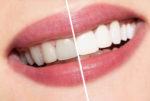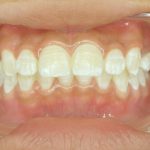Teeth Whitening Guide: When Can You Eat Normally After the Procedure?

A bright, white smile is a universal sign of health and beauty. This is why many people opt for teeth whitening procedures to enhance their appearance and boost their confidence. Teeth whitening is a safe and effective way to remove stains and discoloration caused by various factors such as aging, smoking, and consumption of certain foods and drinks. However, after the procedure, many people wonder when they can resume their normal eating habits without compromising the results. The answer to this question depends on the type of teeth whitening procedure you choose and how well you follow the aftercare instructions. Generally, most dentists recommend avoiding certain foods and drinks for the first 48 hours after the procedure to give your teeth enough time to recover and avoid staining. In this teeth whitening guide, we will discuss when you can eat normally after the procedure, what foods and drinks to avoid, and how to maintain your newly whitened teeth.
Teeth whitening is a cosmetic dental procedure designed to remove stains and discoloration from the surface of teeth, resulting in a brighter, whiter smile. The process involves applying a bleaching agent to the teeth, which penetrates the enamel and breaks down the molecules that cause discoloration. This can be done in a dentist’s office or at home using over-the-counter products. While teeth whitening can be an effective way to improve the appearance of your smile, it’s important to note that it may not be suitable for everyone. Additionally, after the procedure, it’s recommended to avoid consuming dark-colored foods and drinks for at least 24-48 hours to allow the teeth to fully absorb the whitening agent.
Teeth whitening has become increasingly popular in recent years, and for good reason. Not only does it improve the appearance of your smile, but it can also boost your confidence and self-esteem. A bright, white smile can make you look and feel younger, healthier, and more attractive. It can also help you make a great first impression in social and professional situations. While there are many different methods for whitening your teeth, it’s important to choose a safe and effective option that works for you. Whether you opt for an in-office procedure or an at-home kit, be sure to follow the instructions carefully and avoid overusing the product to prevent sensitivity or damage to your teeth and gums.
Teeth whitening has become a popular cosmetic procedure in recent times, with many people opting to undergo the treatment to achieve a brighter, more radiant smile. However, the effects of teeth whitening on diet are worth considering. After the procedure, it is recommended that you avoid consuming foods and drinks that are known to stain teeth, such as coffee, tea, red wine, and dark-colored fruits. These items contain chromogens, which are pigments that can attach to the teeth and cause discoloration. While you can eventually return to your normal diet, it is important to be mindful of what you eat and drink to maintain the results of your teeth whitening treatment.
What happens during teeth whitening procedure?

Teeth whitening is a cosmetic dental procedure that aims to lighten the color of your teeth and remove any discoloration or stains caused by various factors such as aging, smoking, and drinking coffee or tea. The process typically involves applying a bleaching agent, usually hydrogen peroxide or carbamide peroxide, to the teeth’s surface. The bleaching agent breaks down the stains and discoloration, leaving the teeth brighter and whiter. During the teeth whitening procedure, your dentist will first clean your teeth to remove any plaque or tartar. They will then apply a protective gel or rubber shield to your gums to prevent any irritation or sensitivity. Next, they will apply the bleaching agent to your teeth and use a special light or laser to activate the whitening process. The process may take anywhere from 30 minutes to an hour, depending on the severity of the stains and the desired level of whiteness. After the procedure, your dentist may apply a fluoride treatment to strengthen your teeth and reduce sensitivity. It’s important to note that teeth whitening is not a permanent solution and may need to be repeated every few years to maintain the desired level of whiteness. After the teeth whitening procedure, it’s important to avoid eating or drinking anything that may stain your teeth for at least 24 hours. This includes coffee, tea, red wine, berries, and tomato-based sauces. You should also avoid smoking or using any tobacco products for at least 24 hours. It’s best to stick to a soft food diet for the first few days after the procedure and avoid any hard or crunchy foods that may cause sensitivity or discomfort. Your dentist may also recommend using a desensitizing toothpaste or gel to reduce any sensitivity or discomfort you may experience after the procedure. Overall, teeth whitening is a safe and effective way to improve the appearance of your smile and boost your confidence.
Teeth whitening is a cosmetic dental procedure used to lighten the discoloration or stains on teeth caused by various factors such as aging, smoking, or drinking coffee or tea. The process usually involves applying a bleaching agent, such as hydrogen peroxide or carbamide peroxide, to the teeth’s surface, which breaks down the stains and makes the teeth appear whiter. The bleaching agent is usually applied using a custom-fit tray or a light-activated gel. The treatment can be done in-office or at home, and the duration and frequency of the treatment depend on the severity of discoloration. After the procedure, it is recommended to avoid consuming colored or acidic foods and beverages for at least 24 hours to prevent staining and allow the teeth to rehydrate. However, patients can eat normally after the procedure if they are careful and follow the dentist’s instructions.
Teeth whitening treatments have become increasingly popular in recent years, with various options available to individuals seeking a brighter smile. The most common types of teeth whitening treatments include in-office treatments, take-home kits, and over-the-counter products. In-office treatments typically involve a bleaching agent that is applied to the teeth and activated with a special light. Take-home kits involve custom-fitted trays that are filled with a bleaching gel and worn for a certain amount of time each day. Over-the-counter products such as whitening strips and toothpaste contain lower concentrations of bleaching agents and are generally less effective than professional treatments. Regardless of the method chosen, it is important to follow post-treatment instructions carefully, such as avoiding certain foods and drinks for a period of time to ensure the best results.
The time duration of a teeth whitening procedure may vary depending on the type of treatment chosen, the severity of discoloration, and the patient’s individual response to the treatment. In-office whitening procedures typically take around 60 to 90 minutes to complete, while at-home treatments may require several weeks of daily application. After the procedure, it’s important to follow the dentist’s instructions on when you can eat normally again. While some patients may be able to resume a normal diet immediately, others may need to avoid certain foods and drinks for a period of time to prevent staining or sensitivity. It’s important to be patient and follow the recommended guidelines to achieve the best results and maintain a bright, healthy smile.
Food and drinks to avoid after teeth whitening
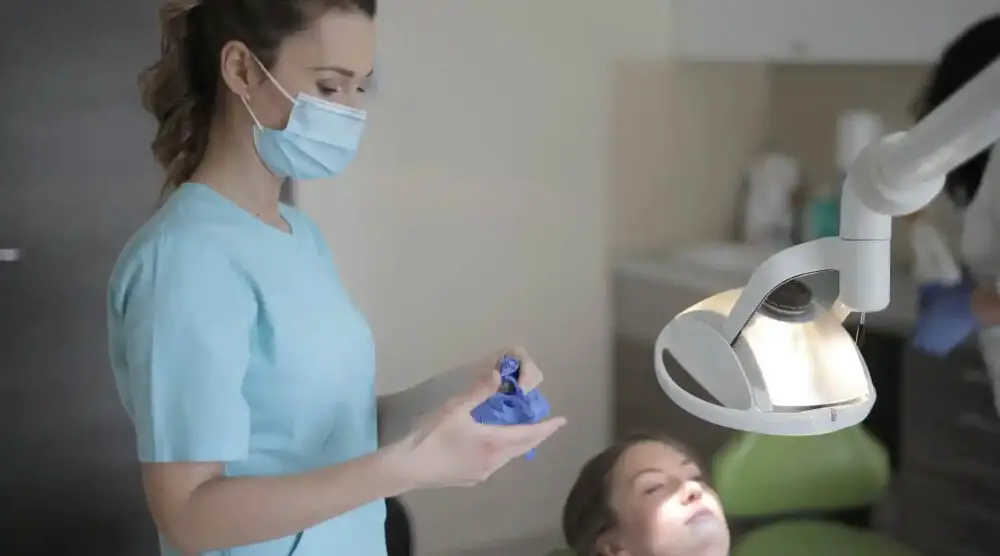
After undergoing teeth whitening, it is essential to avoid certain foods and drinks to maintain the results of the procedure. Acidic and staining foods can cause tooth sensitivity and discoloration, which can undo the effects of the whitening treatment. Foods and drinks to avoid include coffee, tea, red wine, soft drinks, tomato sauce, soy sauce, berries, and citrus fruits. These foods and drinks contain chromogens, tannins, and acids that can penetrate the enamel and cause discoloration. Additionally, acidic foods and drinks can erode the enamel, making the teeth more susceptible to staining and sensitivity. It is also essential to avoid hot and cold foods and drinks for the first 24-48 hours after teeth whitening. The teeth may be sensitive during this period, and consuming hot or cold foods and drinks can exacerbate the sensitivity. Instead, opt for room temperature or lukewarm foods and drinks. Drinking plenty of water is also crucial to maintain oral hygiene and flush out any staining agents that may accumulate in the mouth. Following these guidelines can ensure that the teeth remain white and bright for a more extended period after the whitening treatment.
Certain foods and drinks can stain teeth over time, leaving them looking yellow or brown. Some of the most common culprits include coffee, tea, red wine, soda, and dark-colored fruits such as blueberries and pomegranates. These beverages contain chromogens and tannins, which are compounds that can stick to tooth enamel and cause discoloration. Additionally, acidic foods like citrus fruits and vinegar can erode enamel and make teeth more susceptible to staining. To maintain a bright smile after teeth whitening, it is best to avoid or limit consumption of these staining foods and drinks. If you do indulge, be sure to rinse your mouth with water afterward and practice good oral hygiene habits to minimize the risk of staining.
After a teeth whitening procedure, it is important to take care of your teeth to maintain the newly brightened smile. One way to do this is to avoid certain foods and drinks that can stain or damage the teeth. Foods and drinks to avoid include coffee, tea, red wine, dark sodas, berries, soy sauce, tomato sauce, and dark chocolate. These items contain chromogens, tannins, or acids that can discolor or erode the tooth enamel. Additionally, acidic foods such as citrus fruits, vinegar, and pickles can also weaken the enamel and make it more susceptible to staining. It is recommended to stick to a soft, neutral diet for the first 24-48 hours after the procedure and then gradually reintroduce these foods and drinks in moderation while continuing to practice good oral hygiene habits.
After undergoing a teeth whitening procedure, it is essential to be mindful of what you eat and drink as some foods and drinks can affect the whitening process. For example, dark-colored foods and drinks such as coffee, tea, red wine, and berries contain chromogens, which can stain your teeth and reverse the whitening effects. Acidic foods and drinks like citrus fruits and vinegar-based dressings can also cause tooth sensitivity and enamel erosion, making it harder to maintain the whiteness of your teeth. Sticky and sugary foods can cause plaque buildup, leading to discoloration and tooth decay. Therefore, it is advisable to avoid these foods and drinks for at least 48 hours after the procedure to ensure a successful and long-lasting teeth whitening outcome.
When can you eat normally after teeth whitening?
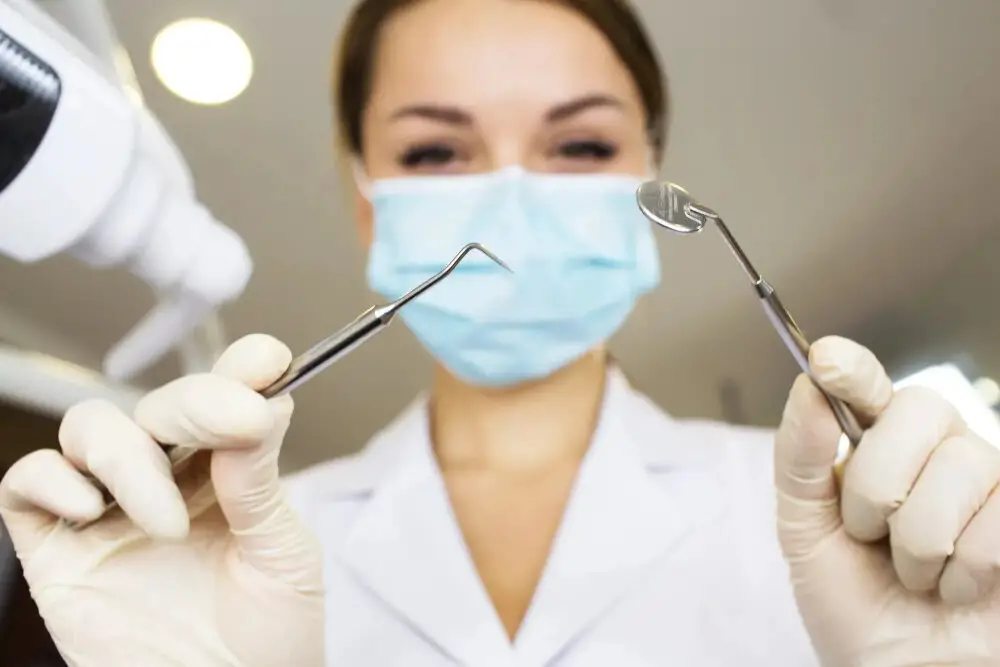
After undergoing a teeth whitening procedure, it is essential to allow your teeth sufficient time to recover before resuming your normal eating habits. The length of time required for this will depend on the type of whitening treatment you received. In general, it is best to wait at least 24 to 48 hours before consuming any dark or heavily pigmented foods and beverages. This is because the bleaching agents used in teeth whitening can temporarily weaken your tooth enamel, making it more susceptible to staining. During this time, it is recommended that you stick to a diet of soft, bland foods and clear fluids. Once the initial recovery period has passed, you can gradually reintroduce more substantial foods into your diet. However, it is still important to be mindful of what you eat and drink, as certain foods and beverages can stain or damage your newly whitened teeth. Some examples of foods and drinks to avoid or consume in moderation include coffee, tea, red wine, tomato sauce, berries, and dark chocolate. By following these guidelines and maintaining good oral hygiene habits, you can help ensure that your teeth stay bright and white for as long as possible.
After undergoing a teeth whitening procedure, it is crucial to follow the dentist’s instructions carefully to ensure optimal results. One of the most common questions that arise after the procedure is when one can resume normal eating. The answer is not straightforward as it depends on the type of whitening treatment used and the individual’s dental condition. However, as a general rule, it is recommended to wait for at least an hour before eating anything after the procedure. This allows the teeth to rehydrate and remineralize, preventing sensitivity and damage to the enamel. It is also advisable to avoid consuming highly pigmented foods and drinks, such as coffee, tea, red wine, and berries, for at least 24-48 hours post-treatment to prevent staining. Overall, it is important to maintain good oral hygiene and follow the dentist’s recommendations to maintain the whiteness of your teeth for as long as possible.
The time duration for when you can eat normally after a teeth whitening procedure depends on several factors. Firstly, it depends on the type of whitening treatment you received. In-office treatments usually take one to two hours, while at-home treatments can take up to several weeks. Secondly, it depends on the extent of staining on your teeth. If your teeth were heavily stained, it may take longer for the whitening treatment to take effect. Thirdly, it depends on how well you take care of your teeth after the procedure. Proper oral hygiene and avoiding foods and drinks that can stain your teeth can help maintain the results of the whitening treatment, allowing you to resume a normal diet sooner. Overall, it’s best to follow the instructions of your dentist or dental professional to ensure the best results and a speedy recovery.
After a teeth whitening procedure, it’s important to take proper care of your oral health to ensure a speedy recovery process. Firstly, avoid consuming foods or drinks that are known to cause staining such as coffee, tea, or red wine. Secondly, stick to soft and cold foods that won’t irritate your teeth or gums such as yogurt, ice cream, or smoothies. Thirdly, maintain good oral hygiene by brushing your teeth twice a day and flossing regularly. Additionally, avoid smoking or using tobacco products as they can cause discoloration and delay the recovery process. Lastly, follow any post-procedure instructions provided by your dentist to ensure a quick and effective recovery. By following these tips, you can enjoy a brighter and healthier smile in no time.
Tips to maintain teeth whitening
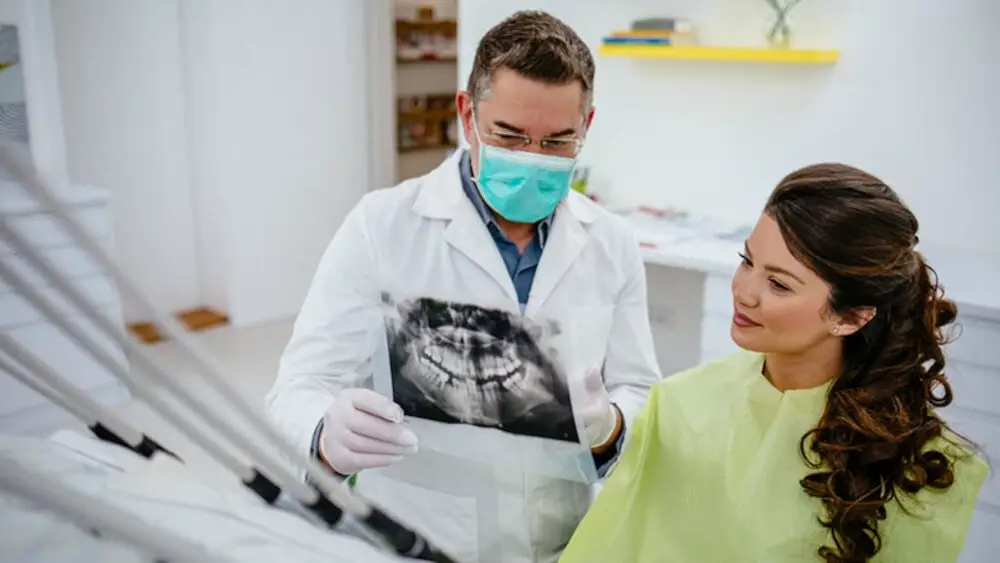
After undergoing teeth whitening, it is important to maintain your pearly whites to keep them shining bright for longer. One of the most effective ways to maintain the whiteness of your teeth is by avoiding foods and drinks that can stain them. Beverages such as coffee, tea, and red wine can leave stains on your teeth, while acidic drinks like citrus juices can erode the enamel and make the teeth appear dull. Therefore, it’s best to limit these drinks or use a straw to avoid direct contact with your teeth. Additionally, avoiding cigarettes and tobacco products is also important as they can leave stubborn stains on the teeth. Instead, opt for water or milk which can help keep your teeth healthy and hydrated. Another way to maintain your teeth whitening is by practicing good oral hygiene. Brushing your teeth twice a day, flossing regularly, and using mouthwash can help remove surface stains and prevent the buildup of plaque. Maintaining a healthy diet can also help in keeping your teeth white. Eating crunchy fruits and vegetables like apples and carrots can help remove stains and prevent discoloration. In addition, drinking water after meals can help rinse away any leftover food particles that can cause staining. By following these tips and maintaining good oral hygiene, you can ensure that your teeth remain bright and white for a longer time.
After undergoing a teeth whitening procedure, it is important to maintain proper oral hygiene to ensure long-lasting results. Firstly, avoid consuming dark-colored foods and beverages such as coffee, tea, and red wine as they can stain your teeth. If you do consume them, make sure to rinse your mouth with water immediately afterward. Secondly, brush your teeth twice a day using a whitening toothpaste to remove surface stains. Flossing and using mouthwash can also help to prevent the buildup of plaque and bacteria that can cause discoloration. Additionally, regular dental check-ups and cleanings can help to maintain a healthy and bright smile. By following these tips, you can enjoy the benefits of your teeth whitening procedure for a longer period of time.
After undergoing a teeth whitening procedure, it is essential to take proper care of your teeth to maintain the results. One of the most important \Dos\ is to brush your teeth twice a day and floss once a day regularly. This will help prevent the buildup of plaque and stains on your teeth. It is also recommended to use a whitening toothpaste to help maintain the whiteness of your teeth. Another \Do\ is to avoid or limit consumption of foods and drinks that can stain your teeth, such as coffee, tea, red wine, and dark-colored fruits. On the other hand, some of the \Don’ts\ include avoiding smoking or using any tobacco products, as they can quickly stain your teeth. Additionally, do not use any harsh mouthwashes, as they can strip your teeth of their natural enamel and cause sensitivity. By following these Dos and Don’ts, you can maintain your teeth’s whiteness and enjoy a bright, healthy smile for years to come.
After undergoing a teeth whitening procedure, it is important to maintain the effects of it. There are several tips that can be followed to keep your teeth looking bright and white. Firstly, avoid foods and drinks that can stain your teeth such as coffee, tea, and red wine. If you do consume them, rinse your mouth with water immediately after. Secondly, practice good oral hygiene by brushing and flossing regularly to avoid the buildup of plaque and tartar. Additionally, consider using a whitening toothpaste to help maintain the brightness of your teeth. Finally, schedule regular dental cleanings and touch-up treatments with your dentist to ensure long-lasting results. By following these tips, you can enjoy a brighter, whiter smile for a longer period of time.
Teeth whitening procedure is a cosmetic treatment that involves the use of chemicals to remove extrinsic stains caused by certain foods and beverages, tobacco, and poor oral hygiene. The process typically involves applying a hydrogen peroxide or carbamide peroxide gel to the teeth and then activating it with a light source. The treatment usually takes about an hour, and multiple sessions may be required to achieve the desired shade. After the procedure, patients may experience sensitivity and should avoid consuming foods and drinks that are likely to stain their teeth, such as coffee, tea, red wine, and berries, for at least 24 hours. It is also recommended that patients refrain from smoking and brush their teeth gently with a soft-bristled brush to maintain the results of the treatment.
After undergoing teeth whitening, it is essential to avoid certain foods and drinks that can stain or discolor your teeth. These include dark-colored beverages like coffee, tea, and red wine, as well as acidic drinks like soda and citrus juices that can erode tooth enamel. Additionally, foods that are high in sugar or artificial coloring, such as candy or brightly colored sauces, should be avoided as they can also contribute to staining. It is best to stick to a white-teeth friendly diet of water, milk, plain yogurt, cheese, white meat, vegetables, and fruits, which can help maintain your newly brightened smile.
After undergoing teeth whitening procedure, there are several tips you can follow for a speedy recovery and maintaining the whiteness of your teeth. Firstly, avoid consuming any dark colored beverages or food items for at least 24-48 hours after the treatment to prevent staining. Secondly, brush and floss your teeth regularly to maintain oral hygiene and prevent further discoloration. Thirdly, use a straw while drinking beverages to minimize contact with your teeth. Additionally, you can try using whitening toothpaste or undergo touch-up treatments to maintain the whiteness of your teeth. Lastly, visit your dentist regularly for check-ups and professional cleaning to ensure your teeth remain healthy and white. By following these tips, you can enjoy a brighter and healthier smile for a longer period of time.
Conclusion
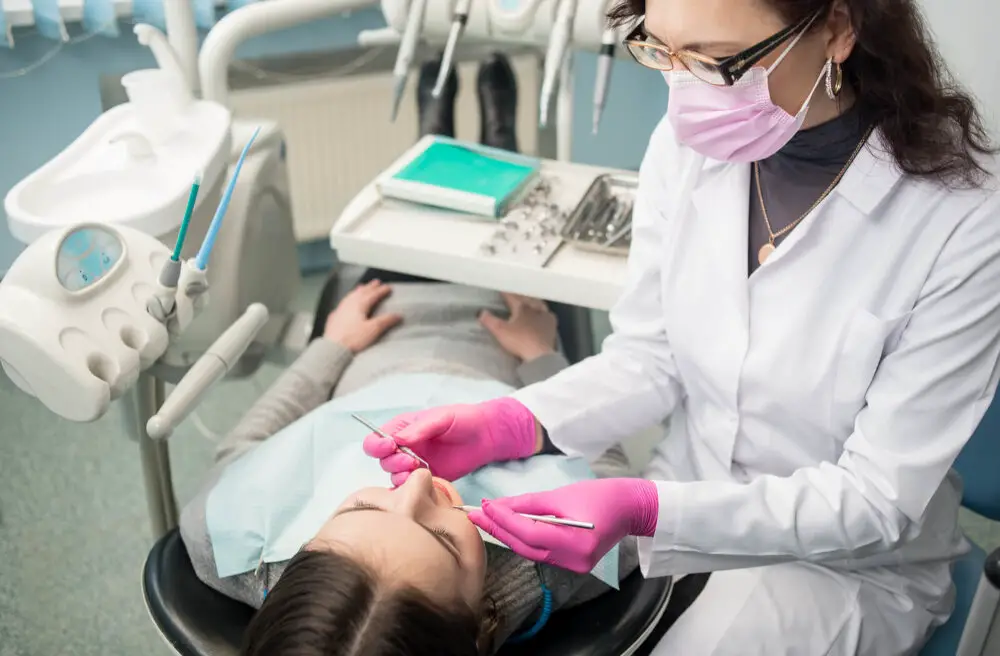
In conclusion, teeth whitening is a popular cosmetic dental procedure that can improve the appearance of your teeth. However, it’s important to follow the aftercare instructions provided by your dentist to ensure the best results. One of the most common questions people have after teeth whitening is when they can eat normally again. While it may vary depending on the type of procedure you had, generally it’s recommended to avoid dark-colored foods and drinks for at least 24 hours. Moreover, it’s essential to maintain good oral hygiene habits to prolong the effects of your teeth whitening. Remember, a bright, healthy smile can boost your confidence and leave a lasting impression.

